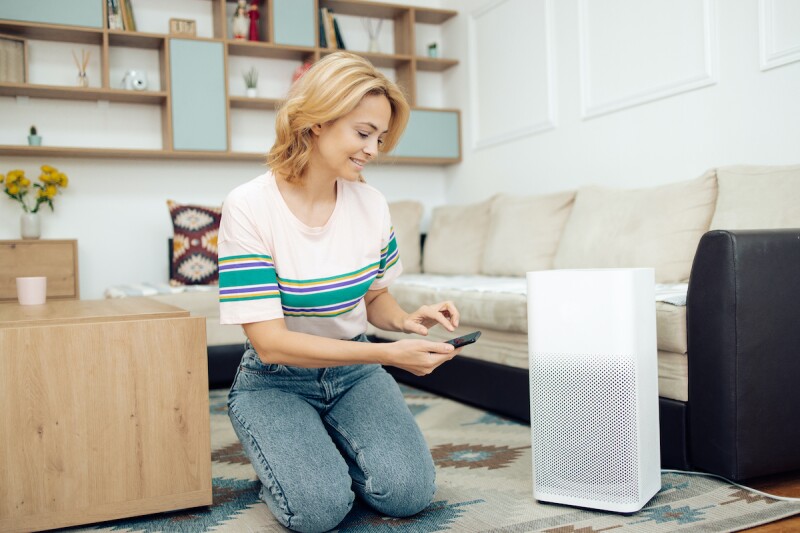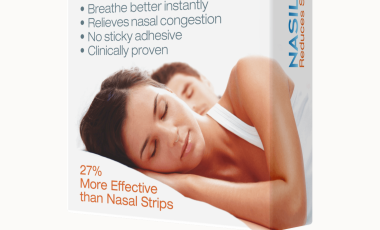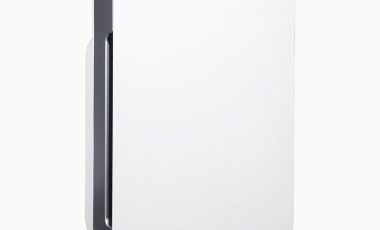Your nose is somehow both stuffy and runny. You’ve got itchy eyeballs, a scratchy throat, and raw nostrils. Yep, it’s your old pal allergies showing up just in time to keep you up, even while you’re exhausted.
We often think it’s the symptoms keeping us awake — and they certainly can. But, with allergies, something more micro is at play. Common allergy triggers that affect our airways are:
- dust mites
- pollen
- mold spores
- pet dander
- cockroach droppings
- household cleaning products with strong smells
These triggers can become sleep disruptors when they accumulate in your room and cause you to feel drowsy and less alert in the morning.
All of those are manageable, thankfully, especially if we take early steps to combat them. In fact, research around allergies and sleep suggest that the better we stay top of our cleaning schedule and allergy aids, the better chance we have of keeping symptoms at bay.
Why Allergies Keep Us Awake and Disrupt Sleep
When your body senses the presence of an allergic invader, it releases histamine, a compound it produces to get our immune system to protect against infections. Normally histamine at work is a good thing, but when it comes to allergies, histamine tends to be overly reactive. Despite our brain knowing some stuff is harmless, our body still finds it invasive.
“Histamine signals your brain to stay awake,” says Dr. Monique May, medical director of sleep at Aeroflow Healthcare. Histamine is also a wake-promoting neurotransmitter. “That is why antihistamines — medicines that block the effect of histamine — make you sleepy or drowsy.”
Why Allergies Get Worse at Night
If you’ve ever noticed that your allergies seem to flare at bedtime, the middle of the night, right when you wake up, or all three, you’re not in a conspiracy theory. Research shows that histamine levels follow our biological clock, or our circadian rhythm.
Histamine levels start to rise around the time that we usually want to crash, worsening allergy symptoms. “Levels tend to peak in the early morning hours and fall to their lowest levels in the afternoon,” May says.
Of course, allergy symptoms themselves can also lead to tossing and turning. “Allergies can cause blockage to your nasal passages and restrict your breathing,” May explains. “Mucus and drainage brought on by the symptoms of allergies can also obstruct your throat and airway passages.”
These blockages don’t just affect your breathing ability at night, they can also create anxiety around sleep, because you’re already dreading the unpleasant experience, leading to insomnia, trouble staying asleep, worse sleep quality, and shorter sleep efficiency. And if you already have a risk for snoring and sleep apnea, allergies may trigger or make those issues harder to sleep with. Research shows that allergies can shorten REM-stage sleep for children and may be associated with sleep apnea for the same group.
These same issues can also crop up with the common cold, although research shows histamine is not the inflammatory process to blame for those symptoms. And while a cold is easier to combat ahead of time, through nutrition, exercise, and hygiene, knowing how to deal with allergies on the fly is also a back pocket strategy to keep around.
Here’s how to give histamine a helping hand, so it does not ruin your sleep.
Tips to Keep Allergies Away and Your Bed Sneeze-Free

A not-so-fun fact of your bedding is that it provides a home for dust mites, pollen, pet dander, and other triggers. The longer you go without cleaning these items, the larger the buildup of allergy triggers are, causing some reactions over time rather than during a specific season.
To avoid itchy eyes and runny noses, plan a little pre-emptive cleaning in the bedroom.
- Wash bed sheets once a week, using the hottest-recommended wash and dry settings for your fabrics.
- Keep your windows shut to prevent pollen and street dust out during windy days.
- Change HVAC filters about every 90 days, or according to the manufacturer’s suggestions.
- Dust and vacuum your sleeping area once a week, including the curtains and headboard.
- Avoid being outdoors during high-pollen times, particularly spring mornings and fall evenings.
- Wash your hair before bed after being outdoors.
- Take your prescription or OTC meds for allergies every day and start a few weeks before your usual allergy season.
[Note: If you buy something using a link on our site, we may earn a commission.]
The Best Products for Allergy and Cold Sufferers
There are plenty of over-the-counter medications made to help allergy-sufferers, but there are also anti-allergen products that help in other capacities. They can be free of strong scents and triggering ingredients or made to keep triggers out, so they don’t build up in your bedding as quickly over time. These products may also help with cold symptoms, since the worst allergy symptoms, like nonstop sneezing and runny noses, can also mimic the cold.
Malouf Woven Rayon Bamboo Sheet Set
Rayon and bamboo make an allergy-killer combo when it comes to being hypoallergenic. These materials are breathable and help regulate temperature without compromising on the soft and silky feel your skin will love.
With great care does come great responsibility, however. Don’t just throw these sheets in the wash on a normal cycle with everything else. You’ll want to avoid detergents without added bleach and set your cycle to warm wash first with a gentle cold rinse after.
From $159.99 | Find Out More
Alen BreatheSmart Air Purifier
One way to achieve symptom-free sleep is to zap triggers from your sleep zone, and Alen is here to do that work for you.
This air purifier removes 99.99% of allergens from up to 700 square feet of space every 30 minutes. For all that power, it’s surprisingly slim and sleek, and you can choose from six different panels to match your décor.
$429 | Find Out More
Allerease Maximum Mattress Protector
Not to be all gross, but dust mites love bedding and mattresses, depending on the materials. But it’s not like you can stuff your mattress in the washing machine. An affordable and convenient way to keep your mattress mite free is with a hypoallergenic protector. This Allerease option blocks 99% of allergens and is totally washable.
$39.99 | Find Out More
Nasilator Dilators
Allergies can cause airway inflammation, leaving you with a whistling noggin. If a stuffy or hooting honker is nixing your good night’s rest, give the Nasilator a try. It gently helps hold nasal passages open so you can breathe a little easier — and quieter. A pack of four will last you 120 days.
$19.99 | Find Out More
PureCare SoftCell Chill Hybrid Cooling Pillow
Sometimes when you're already triggered, you start to feel hot and uncomfortable. Cue the PureCare SoftCell Chill Hybrid Cooling Pillow, which also has antimicrobial silver and silver chloride materials to help deter bacteria, stains, and odors. While the pillow cover keeps dust mites and allergens away, the pillow itself is constructed to keep your head cool and supported.
Plus, you can add extra fill for your desired comfort level and loft.
From $180 | Find Out More
Brentwood Home Zuma Foam Wedge Pillow
If sinus pressure is a regular pain, elevate your sleep with a wedge pillow. Adding a gentle incline without crimping your neck can help ease sinus congestion. This hypoallergenic option is made of CertiPUR-US-certified foam, so it’s nontoxic and it comes with a removable, washable cover. Choose from three heights.
From $39.99 | Find Out More
Prioritizing Sleep When You Have Symptoms
Nixing allergy triggers isn’t always easy, but making the effort is worth it.

“When allergies affect the amount of sleep you receive and the quality of your sleep,” May says, “they can end up having an impact on your quality of life and causing more severe health concerns. Getting a good night’s sleep helps to strengthen your immune system, which helps fight infection and allergy symptoms.”
Creating an allergy-specific bedtime routine is also one way to find relief in discomfort. For example, instead of jumping straight into bed, wind down with diffusers and essential oils, which can aid with nasal congestion and relaxation.
Try box breathing exercises to get air flowing through your lungs and keep your phone hidden so you can focus on sleep, rather than hoping a last-minute web search will save the night. Because the best solution for allergies during sleep may just let your immune system work overnight.
All prices were accurate at the time of publication.












